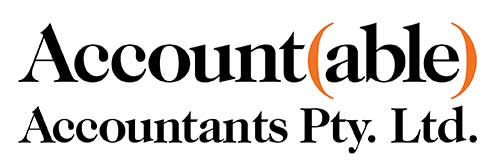Are super contributions tax deductible?

Tax-deductible super contributions
Personal super contributions—those made from money you’ve already paid tax on such as savings or your take-home pay—may be tax deductible. If you are eligible, these contributions can be claimed against your assessable income when you lodge your tax return. So, you get to save some tax whilst bringing you closer to your retirement goals.
Generally, these contributions are capped at $27,500 per financial year. If you choose to contribute over this amount, you may be required to pay more tax.
Here’s how it works.
Case study example
Joana works in IT earning $90,000 a year. She decides to make an additional personal contribution of $13,000 into super.
Here’s the first complication – she pays tax on that contribution at 15% ($1,950) so she is left with $11,050 to invest for her retirement.
When completing her tax return, Joana claims a tax deduction for the $13,000 personal super contribution. This reduces her taxable income to $77,000 for the financial year.
As the tax rate she pays on her income is 34.5% (including the 2% Medicare levy), she pays $4,485 less in tax than she would have had she not made the super contribution. In total, she saves $2,535 on tax (we’ve deducted the $1,950 paid in contributions tax).
Who can make tax-deductible contributions?
Unfortunately, not everyone can claim a tax deduction for their personal super contributions. Some of the criteria that makes you eligible to do this includes:
- Be aged under 75
- Meet the work test if you’re aged between 67 and 74
- Not make the contribution to an untaxed super fund or a Commonwealth public sector defined benefit fund
- You have provided a notice of intent to your super fund which has validated and provided you with an acknowledgement.
Note: if you do claim a tax deduction for your personal super contribution, you can’t also claim the government super co-contribution for those same contributions.
Benefits of tax-deductible super contributions
Tax-deductible super contributions offer many benefits if you’re looking to boost your retirement savings while also reducing your taxable income.
Here are some of them:
- Reduced taxable income: making tax-deductible super contributions can reduce your taxable income for the financial year. This can lower your income tax, potentially putting you in a lower tax bracket and saving you money on your tax bill
- Increased retirement savings: making personal tax-deductible contributions can be a great way to offset capital gains you make on assets held outside super. If you’ve sold an asset that is subject to capital gains, you may contribute some or all of that money and claim it as a deduction. This could reduce or even eliminate the capital gains tax owed
- Compounding growth: contributions made to your super benefit from compounding growth over time. This means that not only do you boost your retirement savings, the earnings on those contributions can also compound and grow over the long-term
- Catch-up contributions: if you haven’t exceeded the concessional contribution cap in previous years, you may be able to make catch-up contributions. This means you can contribute more than the standard cap of $27,500 in one year by using up the unused cap amounts from earlier years.
Considerations for tax-deductible super contributions
There are some things to consider when claiming a tax deduction on super contributions.
- Personal tax-deductible super contributions are capped at $27,500 per financial year unless you are eligible to make catch-up concessional contributions. If you choose to contribute more than your cap, you may be required to pay more tax.
- Your personal tax-deductible super contribution is taxed at 15% which is significantly lower than what most people pay on their taxable income (the highest marginal tax rate is 47% if you include the Medicare Levy).
- Higher income earners (on more than $250,000) are taxed at 30% on contributions. This still provides an opportunity to boost your super savings and save tax compared to the top marginal tax rate of 47% which is applied to income at this level
- If you’re a lower income earner on a marginal tax rate close to or less than 15%, there may be little advantage in making a tax-deductible super contribution.
- If you’re 67 to 74, you need to meet a work test if you wish to claim a tax deduction for a personal super contribution. This means you must have been employed or self-employed during the financial year for at least 40 hours over a period of no more than 30 consecutive days.
Claiming your tax deduction
To claim a tax deduction, you’ll need to provide your super fund with a ‘Notice of intent to claim or vary a deduction for personal super contributions’ form. This form is available through your super fund or the Australia Taxation Office.
If your super fund considers the notice valid, it will process your request and send you an acknowledgement.
How do salary sacrifice contributions differ?
Salary sacrifice contributions are arranged with your employer and are made before income tax is deducted from your salary, reducing your taxable income immediately.
Personal tax-deductible contributions are made from your after-tax income. You claim a tax deduction for them when you file your tax return, which also reduces your taxable income.
Both types of contributions are concessional contributions with an annual limit of $27,500 per financial year, unless you are eligible for catch-up concessional contributions.
Frequently Asked Questions
How much of my super contribution is tax deductible?
Personal super contributions—those made from money you’ve already paid tax on such as savings or your take-home pay—may be tax deductible. If you are eligible, these contributions can be claimed against your assessable income when you lodge your tax return.
Do super contributions reduce taxable income?
If you’ve made personal super contributions, you may be eligible to claim them as a tax deduction which may reduce your taxable income.
Salary sacrifice contributions, which are arranged with your employer and made before tax is deducted from your salary, may also reduce your taxable income.
Is it better to salary sacrifice super or claim a tax deduction?
Sacrificing some of your salary into super can reduce your taxable income, so you may end up paying less tax. The amount of tax you pay—15%—is a lot lower than the tax rate you pay on your income, which can be up to 47% (including the Medicare Levy). Higher income earners (on more than $250,000) are taxed at 30% on contributions.
Bottom line: super is harder than it probably should be—but better than you probably think. There can be a range of tax savings, structured long-term investing and regular contributions, which can make it a powerful engine for assisting with an anxiety-free retirement. Talking to a financial adviser can make it a lot easier.
By MLC
